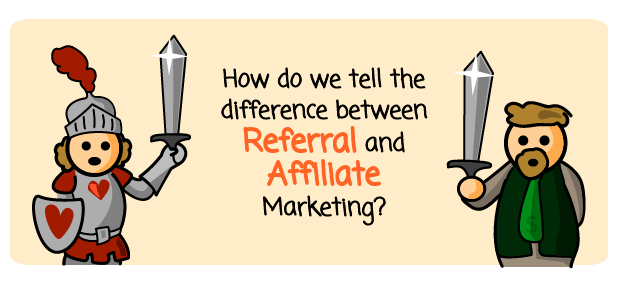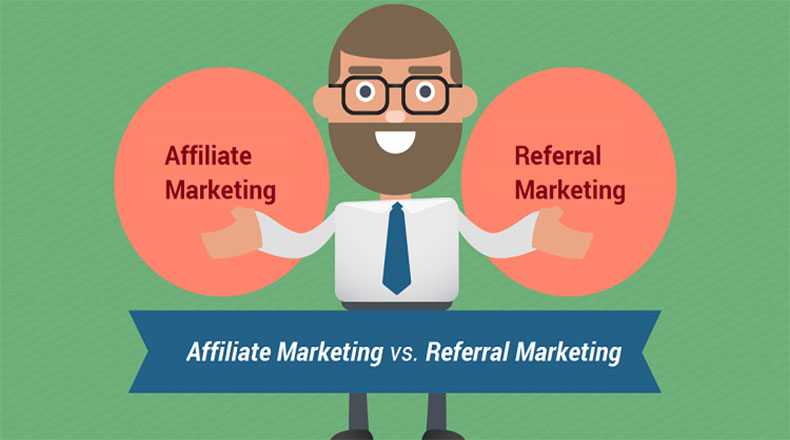Recent posts

Press Releases
Africaworks Accelerates The Rollout Of Real Estate Investment Platform
20 January 2026

Press Releases
80% of Gen-Zers Would Marry an AI
19 January 2026

Press Releases
The Rise of AI Computing Power Assets
16 January 2026

Industry Experts
Common ASO Mistakes African App Developers Make
09 January 2026
Popular posts
Extravaganza
Trending Music Hashtags To Get Your Posts Noticed
24 August 2018
Geek Chic
How To Fix iPhone/iPad Only Charging In Certain Positions
05 July 2020
Extravaganza
Trending Wedding Hashtags To Get Your Posts Noticed
18 September 2018
Money Talks
How To Find Coupons & Vouchers Online In South Africa
28 March 2019
Affiliate Vs Referral Marketing Which Is Right for You
03 October 2017 | 0 comments | Posted by Che Kohler in nichemarket Advice
In the world digital marketing, monetization and reports provide key insights on how one should go about attracting customers. Marketers and business owners become obsessed with these numbers and often every marketing cent is scrutinized.
While it is crucial to know where your budget is best spent, and carefully selecting how your business can get the best bang for its buck, this way of thinking can often cut you off from potential opportunities via other channels. When you're too performance related you often neglect certain channels, the two that often get the cold shoulder are affiliate and referral marketing.
Even though both referral marketing and affiliate marketing can become powerful channels on their own and contribute to the success of most organizations.
So what exactly are these all about? Why are they being ignored? Let's take a closer look at how the two differ, and why you can't have one without the other.
What is the difference between affiliate and referral marketing?
Affiliate In affiliate marketing, the affiliate does not know the referred customer personally and the primary reason for referring your brand is due to the financial motivation. Referral The referer advocates your brand to friends, family, followers on social media, their blog, or website and provides a greater sense of authority and a stronger relationship between the advocate and potential customer, very similar to what social media influencers have become.
How affiliate and referral marketing work
Affiliate
- Affiliate signs up for merchant affiliate program
- Affiliate uses an affiliate link in their marketing campaigns to drive sales to the merchant or service provider
- Merchant tracks affiliate links all the way to final purchase and then pays out agreed on compensation
Referral
- Merchant identifies a list refers or referrer had a positive experience with merchant
- Referer links to the merchant via their friend, family or business network advocating merchants goods or services
- A merchant can track referral links, traffic and sales and if they would like to reward the referrer
Pros
Affiliate
- Your success is tied to their success
- Your product margins or cost per lead may increase but you can keep commissions steady
- Reaching audiences you would not normally have reached
Referral
- Referral can reduce your sales expenses and you can reward refers ad-hoc
- Referral customers are usually deeper in the pipeline and convert faster
- Referral links improve your sites SEO
Cons
Affiliate
- Affiliates can drive plenty of non-qualified leads in the hope of driving sales and spam customers
- Affiliates can attempt grey route marketing and your brand, product or service could be misrepresented
- Affiliate payout and admin will incur its own costs and management system
Referral
- Referral traffic does not provide steady growth and can be volatile since it is not rewarded based on performance
- Sourcing the correct referrals and then reaching out to them is a time-consuming process
- If referral source comes from social media it is hard to track or differentiate between the social traffic you're already getting
Which channel is right for you?
Consider the following about your business
- If your business has the margin to play with to sustain commissions
- If your marketing is a performance-based
- If your product is B2B or/and consumer-targeted
- If you do not have a large in-house marketing team
If one or more apply to you, I would recommend opting for the affiliate route Consider the following about your business
- If your business has smaller margins
- If your marketing is brand based
- If your product or service is a social friendly and consumer brand
- If you have a large in-house marketing team
If one or more
Contact us
If you would like us to improve the referral or affiliate marketing advertising for your site or want to know more about digital marketing for your business, then don’t be shy we’re happy to assist. Simply contact us
Are you looking to promote your business?
South African Business owners can create your free business listing on nichemarket. The more information you provide about your business, the easier it will be for your customers to find you online. Registering with nichemarket is easy; all you will need to do is head over to our sign up form and follow the instructions.
If you require a more detailed guide on how to create your profile or your listing, then we highly recommend you check out the following articles.
Recommended reading
If you enjoyed this post and have a little extra time to dive deeper down the rabbit hole, why not check out the following posts on affiliate marketing.
Tags: referral marketing , affiliate marketing, tips, how to
You might also like
The South African Industrial Tech Revolution
05 January 2026
Posted by Stephen Johnson in Ace of Trades
Explore how cutting-edge software and technology are driving the South African industrial tech revolution, optimising operations and boosting global ...
Read moreWhy Cross-Border Payments Are Slow, Tedious, and Expensive
17 December 2025
Posted by Che Kohler in Money Talks
While we have modernised many industries, surprisingly, digital payments are struggling to keep up, and the old way of transferring funds online has ...
Read more{{comment.sUserName}}
{{comment.iDayLastEdit}} day ago
{{comment.iDayLastEdit}} days ago
 {{blogcategory.sCategoryName}}
{{blogcategory.sCategoryName}}


